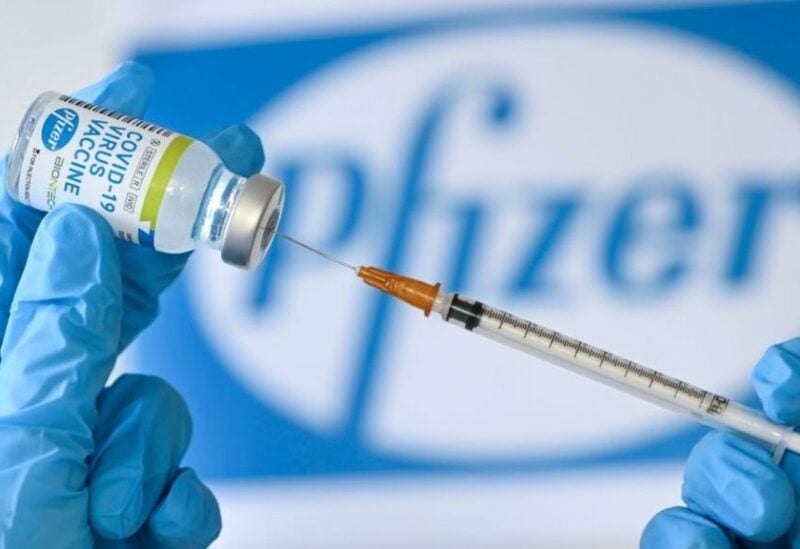
Pfizer Inc and BioNTech asked US regulators to approve emergency use of their COVID-19 vaccine for children
On Wednesday, BioNTech and Pfizer announced that a three-shot course of their COVID-19 vaccine was able to neutralize the new Omicron variation in a laboratory test, indicating that booster injections may be necessary to protect against infection from the newly found version.
Two doses of their vaccine, according to the German and American businesses, resulted in much weaker neutralizing antibodies but may still be protective against severe illness.
“The initial line of defense may be weakened with two doses of vaccination, and three rounds of vaccination are necessary to reestablish protection,” BioNTech Chief Medical Officer Ozlem Tuereci stated during a news conference.
The firms also stated that if an improved vaccination targeting the Omicron strain is required, it may be delivered in March 2022.
BioNTech and Pfizer are the first COVID vaccine makers to provide an official update on the effectiveness of their injection against Omicron.
The Omicron version was neutralized roughly as efficiently as two doses neutralized the original virus found in China in blood samples obtained about a month after the third shot.
The Omicron type, discovered last month in southern Africa and Hong Kong, has sparked global concern about a new wave of infections. Cases have previously been recorded in Japan, the United States, and Europe.
“The new data from Pfizer on vaccine effectiveness against Omicron is encouraging,” U.S. President Joe Biden tweeted on Wednesday. “Anyone who is eligible and has not been boosted should go get a booster today.”
BioNTech CEO Ugur Sahin suggested that countries might consider shortening the time period between second and third doses of the vaccine to combat the new variant.
He cited recent moves by countries including Britain to bring the third shot forward to three months after the second shot, from six months previously.
“We believe this is the right way to go particularly if the Omicron is now spreading further, to enable a better level of protection in the winter season,” Sahin said.
Dr. Walter Orenstein, a professor at Vanderbilt and former director of the U.S. CDC’s immunization programs, said he found the data encouraging because it suggests that the current vaccines are still usable against the Omicron.
“We may not have to change the vaccine,” he said. “We may be able to get by with the current vaccine, at least for repression of severe disease.”
OMICRON-SPECIFIC VACCINE
The World Health Organization classified Omicron on Nov. 26 as a “variant of concern” but said there was no evidence to support the need for new vaccines specifically designed to tackle the variant and its mutations.
Nevertheless, the companies said they would continue efforts to bring an Omicron-specific COVID-19 vaccine to market. Work started on Nov. 25.
They said their planned production of 4 billion doses of the Comirnaty vaccine in 2022 was not expected to change if an adapted vaccine was required. BioNTech said that even if an adapted vaccine was available in March, it would not be broadly available for some time, noting that perhaps 25 to 75 million doses of the new vaccine would be ready at first.
Pfizer scientist Kena Swanson said the company is considering also testing two doses of an Omicron-specific vaccine in currently unvaccinated people.
Pfizer and BioNTech’s findings are broadly in line with a preliminary study published by researchers at the Africa Health Research Institute in South Africa on Tuesday, which said Omicron could partially evade protection from two doses of the Pfizer/BioNTech vaccine and suggested a third shot might help fend off infection.
Research on the new variant is still at an early stage. Laboratory analysis at University Hospital Frankfurt in Germany found the ability to mount an antibody response to Omicron in people who had three shots was up to 37 times lower than the response to Delta.
Even so, two shots of the vaccine may still protect against severe disease, Pfizer and BioNTech said.
The vast majority of surface structures on the Omicron spike protein targeted by the T-cells, which typically emerge after vaccination, are not affected by Omicron’s mutations, they said.
T-cells are the second pillar of an immune response, alongside antibodies, and are believed to prevent severe disease by attacking infected human cells.
For their analysis, the two companies used a virus that was bio-engineered to have the hallmark mutations of Omicron, known as a pseudo-virus, and blood was collected from subjects three weeks after a second vaccine dose or one month after a third.
There is no significant data yet on how vaccines from Moderna, Johnson & Johnson and other drugmakers hold up against the new variant but they are expected to release their own data within weeks.